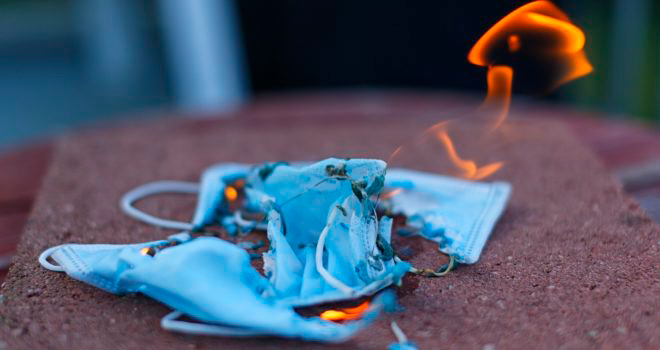We have spoken untruths and made many mistakes, so we must be forgiven with a pandemic amnesty. This is the meaning of the article published in The Atlantic by Emily Oster, economist and lecturer in the Goldman Sachs training program at Brown University, New England. The title of the article is "LET’S DECLARE A PANDEMIC AMNESTY: We must forgive each other for what we did and said when we were unaware of COVID".
A text full of self-criticism which, however, comes to a conclusion that sounds delusional:
The standard saying is that those who forget history are destined to repeat it. But dwelling on the errors of history can also lead to a repetitive cycle of doom.
What are the mistakes: Oster explains this with some clarity from the beginning, when he talks about the excursions he took with his family during the first phase of Covid:
We wore cloth masks and also reminded the children to keep their social distance. These precautions were totally misleading. In April 2020, no one fell ill with the coronavirus after passing someone else on a hike. Outdoor transmission was incredibly rare. Our cloth masks made from old bandanas wouldn't have done anything, anyway. But the fact is: we didn't know.
Oster completely overlooks the fact that the uselessness of outdoor masks had been raised since the early stages of Covid by various experts, who were silenced and discredited. The article mentions "important choices we had to make in conditions of tremendous uncertainty", among the wrong ones Oster cites school closures:
There is an emerging (if not universal) consensus that schools in the United States have remained closed for too long: the health risks of dissemination in schools were relatively low, while the costs for student welfare and educational progress were high.
Obviously, a reference to vaccines cannot be missing:
When the vaccines came out, we had no definitive data on the relative efficacy of the Johnson & Johnson vaccine compared to Pfizer's and Moderna mRNA options. The mRNA vaccines won. But at the time, many people in public health were neutral or expressed a preference for J&J. This misstep was the result of uncertainty.
And then the mistake of having closed the beaches in Los Angeles County, of having led people to neglect their health because of the emergency, the criminalization of students and young people as a group that spreads the virus. Peacemaking:
Let's forgive ourselves with an amnesty.
In the end, Oster proposes a kind of pacification which he calls a “pandemic amnesty”, acknowledging the fact that the covid issue has created a rift in the scientific community.
We recognize that we have made complicated choices in the face of profound uncertainty, so we try to work together to rebuild and move forward. We have to learn from our mistakes and then let them go.
Behind these words there is the awareness of all that was useless and wrong imposed to contain the contagion, without success. There is also a veiled admission that someone, in the audience of doctors and experts, had a contrary opinion that went unheard and then turned out to be correct. In essence, behind this article in The Atlantic there is a full awareness, if not a fear, of the fact that someone will be able or will have to pay for the mistakes committed against citizens. And then an amnesty is asked. An amnesty in legal jargon is a cause for extinction of the crime, and whoever asks for it can only be aware that at least one crime has been committed. So the question naturally arises: will it be an attempt to eacape some judicial measure on the management of Covid?
References:
https://www.theatlantic.com/ideas/archive/2022/10/covid-response-forgiveness/671879/








Curated for #informationwar (by @aagabriel)
Delegate to the @informationwar! project and get rewarded
Thank you @aagabriel!
All i can do is offer a !PIZZA
I gifted $PIZZA slices here:
@davideownzall(1/10) tipped @informationwar (x1)
Learn more at https://hive.pizza!